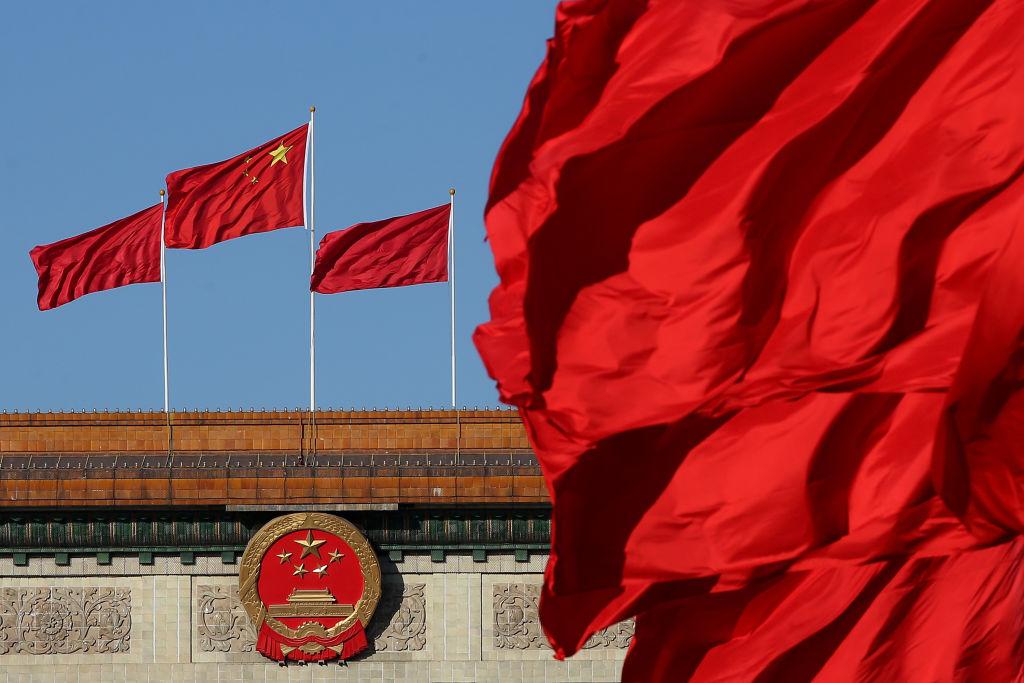Australia’s China policy and national security
Posted By Michael Shoebridge on February 18, 2022 @ 06:00

Beijing has repeatedly misunderstood Australia and Australians, so whomever it might ‘pick’ out of particular parties, its track record of judgement has been terrible.
China’s leaders thought using the country’s trade with Australia in lobsters, barley, wine, wheat and coal as a weapon [1] would change the government’s policy on China’s aggressive cyber hacking, political interference and growing military intimidation of others in our part of the world.
They were wrong.
I’m pleased the chief of the Australian Security Intelligence Organisation has made it clear [2] that foreign interference activities by states like China—and Russia—are real and threaten the integrity of all political parties unless we are clear-eyed and calm in countering them. He’s told us that spying and foreign interference now outweigh terrorism as threats to Australia. He’s also said foreign interference is a threat every political party has to take seriously.
Beyond the generalised warning, though, I’d rather see even more clarity both from ASIO and from our parliament in getting specific about who is doing what. Without that, there’s a risk of creating confusion and uncertainty.
It shouldn’t be left to a senator like Kimberley Kitching to have to use parliamentary privilege [3] to tell Australians details about the recent plot ASIO disrupted, even if we should be glad she did so.
ASIO should get comfortable naming the key individuals behind such plots and the foreign government they were serving. Doing so can only help our understanding and keep our democracy resilient.
We’ve seen an inability to name the problem publicly, with phrases like ‘a sophisticated state actor’ [4] and ‘country-agnostic’ policies, for too long. Naming problems helps face and resolve them.
There is indeed bipartisanship on Australia’s China policy—and both major parties know they need to have strong policies on China—because of the actions of the Chinese government and because public opinion [5] in Australia has hardened against Xi Jinping and the way he is using Chinese power.
That same shift in assessment of China is happening in other parts of the world—notably Europe, North America, India and Japan.
But policies need sustained implementation. And when you are dealing with a powerful, coercive regime like the one led by Xi, that takes continued political will. The current debate is reminding us all of that.
It’s also a reminder that times have changed radically in the 10 years since the then Australian government—Julia Gillard’s government—released the optimistic Australia in the Asian century [6] strategy that saw only the upside of economic engagement with the region, notably China.
Any party governing Australia after the forthcoming election needs to understand in its bones that there is no ‘reset’ moment that takes us back to the future. There are still businesses and also officials at state and federal level who harbour nostalgic dreams of a return to the plan of increasing Australian access to the China market.
But, without cringing and damaging concessions—see Beijing’s list of 14 grievances [7]—in which Australia demonstrates penitence and contrition for daring to have differences with the Chinese Communist Party regime, there’s not the remotest prospect of new directions for the relationship while Xi rules China and conducts a ‘great closing’ after Deng Xiaoping’s great opening to the world.
Below the level of simple statements about China policy, there’s a heaving mass of issues that the Australian government will need to keep taking decisions and talking about. How important is collective action by the world’s powerful democracies given the now concerted actions [8] of two autocratic powers—Russia and China—against our interests and values? How do the very different political systems in the democratic and authoritarian worlds engage digitally and in areas of data and technology?
How much does Australian policy, regulation and investment need to push and support our companies and universities to accelerate their diversification strategies away from long-term all-in bets on the China market? Will Australia seek to be a leader in any of these debates and areas of decision or be a fast and quiet follower?
Fortunately, Australian policy on China is bringing us closer to powerful friends—as demonstrated by the US, Indian and Japanese foreign ministers, Antony Blinken, S. Jaishankar and Yoshimasa Hayashi, coming to Melbourne just last week [9]. Their Quad meeting happened in the midst of the Russia–Ukraine crisis, but the fact that it happened at that time and kept its focus on the challenges to security and public health in our region shows this.
Whoever wins government in the next Australian election, their job will be to serve Australia’s national interest by working on the China challenge with our close partners and friends—and by being honest with Australians about the practical challenges Beijing brings.
Article printed from The Strategist: https://aspistrategist.ru
URL to article: /australias-china-policy-and-national-security/
URLs in this post:
[1] as a weapon: https://foreignpolicy.com/2021/11/09/australia-china-decoupling-trade-sanctions-coronavirus-geopolitics/
[2] made it clear: https://www.asio.gov.au/publications/speeches-and-statements/director-generals-annual-threat-assessment-2022.html
[3] parliamentary privilege: https://www.smh.com.au/politics/federal/who-is-chau-chak-wing-the-alleged-puppeteer-behind-foreign-interference-plot-20220215-p59wjt.html
[4] a sophisticated state actor’: https://www.nytimes.com/2019/02/18/world/australia/parliament-hack-state-actor.html
[5] public opinion: https://www.pewresearch.org/fact-tank/2021/06/30/chinas-international-image-remains-broadly-negative-as-views-of-the-u-s-rebound/
[6] Australia in the Asian century: https://apo.org.au/node/31647
[7] Beijing’s list of 14 grievances: /fourteen-points-on-australias-icy-times-with-china/
[8] concerted actions: http://en.kremlin.ru/supplement/5770
[9] last week: https://www.state.gov/joint-statement-on-quad-cooperation-in-the-indo-pacific/#:~:text=We%20welcome%20progress%20on%20the,HADR%20cooperation%20in%20the%20region.
Click here to print.